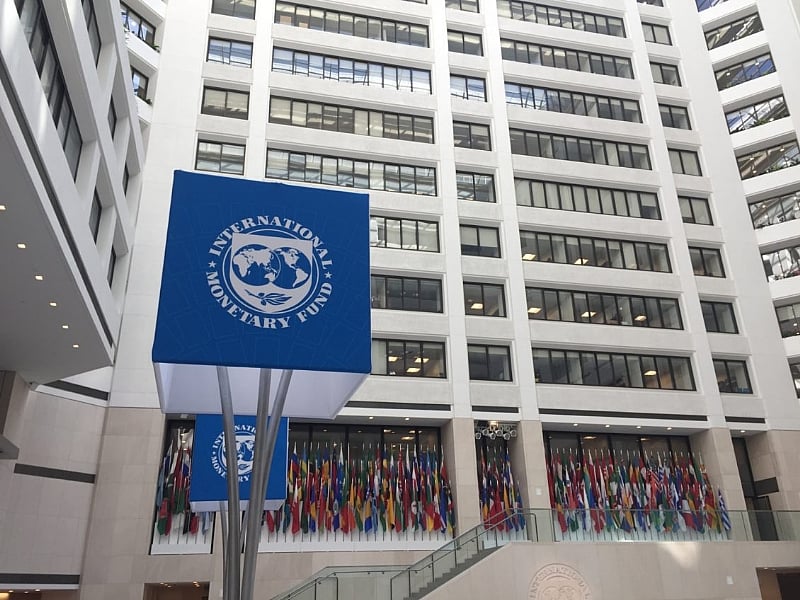Ghana’s persistent position as the fifth most indebted African nation to the International Monetary Fund (IMF), with outstanding credit of Special Drawing Rights (SDR) 2.70 billion as of August 2025, highlights the complex interplay between the need for external financial assistance and the potential risks associated with such reliance. This figure, unchanged from July, underscores the ongoing challenges Ghana faces in navigating its debt obligations while striving for sustainable economic growth and financial stability. The country finds itself in the company of several other African nations grappling with similar issues, including Egypt, Côte d’Ivoire, Kenya, the Democratic Republic of Congo, Ethiopia, Tanzania, Cameroon, and Zambia, all of whom have significant outstanding credit with the IMF. This situation reflects a broader trend across the continent where countries are increasingly turning to international financial institutions for support, raising concerns about the long-term implications of such dependence.
Borrowing from the IMF can provide crucial short-term relief by injecting much-needed liquidity into struggling economies, enabling governments to finance essential public services and stabilize their finances. This can be particularly important during periods of economic crisis, natural disasters, or other unforeseen circumstances. However, relying heavily on IMF loans comes with its own set of challenges. These include the potential erosion of economic sovereignty as borrowing nations often need to adhere to specific policy prescriptions set by the IMF as conditions for receiving the loans. These conditions can sometimes restrict a country’s ability to independently formulate and implement its own economic policies, potentially hindering its ability to tailor solutions to its specific circumstances. Moreover, reliance on external financing can increase vulnerability to external economic shocks, as fluctuations in global markets and investor sentiment can significantly impact a country’s debt burden and its ability to repay its obligations.
The IMF often advocates for structural reforms aimed at improving fiscal discipline, enhancing transparency, and promoting market liberalization. While these reforms can contribute to long-term economic stability and growth, they can also entail short-term pain, particularly through austerity measures. These measures, which can involve cuts to public spending and increases in taxes, can have a negative impact on vulnerable populations, potentially leading to social unrest and political instability. Moreover, the implementation of IMF-prescribed reforms often requires significant capacity building within government institutions to effectively manage and oversee the changes, a process that can be time-consuming and resource-intensive. Furthermore, there is ongoing debate about the effectiveness of standardized reform packages, as they may not always be tailored to the specific needs and context of each borrowing country.
The long-term implications of excessive reliance on IMF financing can be substantial. One of the most significant risks is the potential for countries to fall into debt dependency cycles. This occurs when a country borrows repeatedly to service existing debt obligations, creating a vicious circle where a significant portion of national resources is allocated to debt repayment, leaving little room for investment in crucial areas such as education, healthcare, and infrastructure. This can ultimately stifle economic growth and development, exacerbating the very problems the borrowing was intended to address. Additionally, continuous reliance on external financing can undermine investor confidence, as it signals a lack of fiscal sustainability and a dependence on external support, potentially hindering private sector investment and economic diversification.
For African economies, navigating this complex terrain requires a delicate balancing act. While accessing international financial support can be critical in times of need, it is essential to develop robust domestic strategies to complement external financing and mitigate the risks associated with dependence on institutions like the IMF. This necessitates a focus on strengthening domestic revenue mobilization, improving public financial management, fostering private sector development, and promoting inclusive economic growth that benefits all segments of society. Furthermore, developing effective debt management strategies is crucial to ensure that borrowing is done in a sustainable manner and that debt levels remain manageable. This includes exploring innovative financing mechanisms and strengthening debt transparency to enhance accountability and prevent the accumulation of unsustainable debt burdens.
Ghana’s current position as a significant debtor to the IMF underscores the importance of these considerations. To avoid falling into a debt trap and ensure sustainable growth and financial stability, the country must prioritize the development and implementation of sound economic policies that promote fiscal discipline, enhance productivity, and diversify its economy. This will require a concerted effort from the government, the private sector, and civil society to work together towards a shared vision of economic prosperity and resilience. By striking a balance between accessing international support and fostering national economic independence, Ghana can navigate its current challenges and lay the foundation for a more sustainable and prosperous future. This will require not only effective management of existing debt obligations but also proactive measures to prevent future debt accumulation and ensure that borrowing contributes to long-term economic growth and development.


